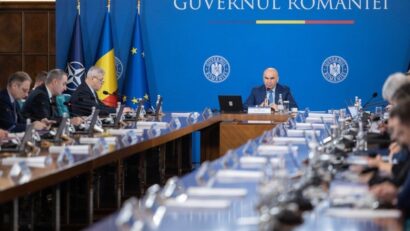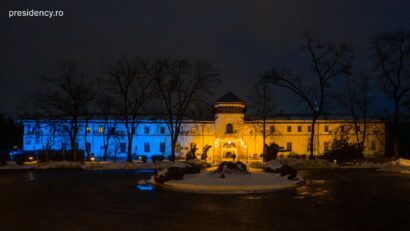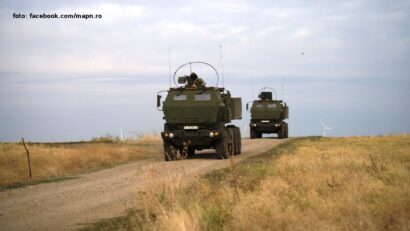Latvia’s presidency of the European Union
Holding the presidency of the European Union for the first time, Latvia has an ambitious agenda for the next 6 months.
Bogdan Matei, 22.01.2015, 13:48
In the first six months of 2015, the rotating presidency of the European Union will be held by Latvia. Having joined the European bloc in 2004, Latvia is one of the youngest and, with its 2 million and a half inhabitants, one of the smallest member states. Its agenda for the next six months is, however, very ambitious. “Our objective is to defend the European values, a space of freedom, security, justice and mutual tolerance”, the country’s Prime Minister Laimdota Straujuma told the European Parliament a week ago.
According to Radio Romania’s correspondent in Brussels, the Latvian prime minister also spoke about measures to allow the creation of a single European digital market, the creation of new jobs and economic growth. One of the most important events on the agenda of the Latvian presidency is the Eastern Partnership Summit to be hosted by the country’s capital Riga in May.
The Summit is a forum of cooperation by which Brussels tries to lock six former Soviet republics into a sphere of European influence: Armenia, Azerbaijan, Belarus, Georgia, the Republic of Moldova and Ukraine. Itself under Russian occupation for half a century, until 1991, Latvia is best placed to guide the six states towards Europe. Three of them, namely Moldova, Ukraine and Georgia, already signed association agreements with the European Union last year.
On Wednesday in Bucharest, both Latvia and Romania voiced their full support for maintaining the economic sanctions against Russia until a ceasefire is achieved in Ukraine. Latvia’s ambassador to Bucharest, Ilgvars Klava said his country wished to act as a mediator and have an active role in Romania’s efforts to join the Schengen area.
The Latvian ambassador believes there is no deadline for Romania’s joining the Schengen area, but based on the information available to the Latvian presidency, he thinks there is a realistic chance to reach a decision in this respect during the Latvian presidency of the EU.
Romania’s foreign minister Bogdan Aurescu has reiterated that Romania is already behaving like a member of the Schengen area, while its borders, which coincide with the European Union’s external borders, are very well protected: “The consolidation of the Schengen area following the accession of Romania and Bulgaria can be done in such a way as to ensure that the European Union benefits de jure, and not only de facto, from Romania’s contribution to the Union’s internal security.”
The Romanian foreign minister also said that security within the European Union could be improved without affecting basic European principles such as the free movement of people and labour.






























